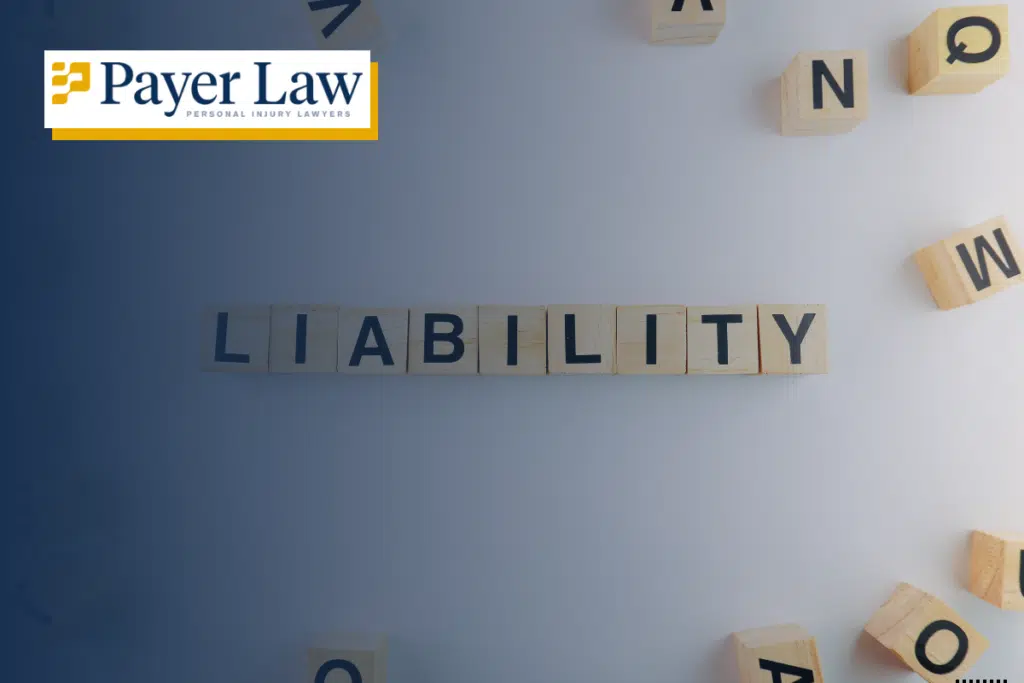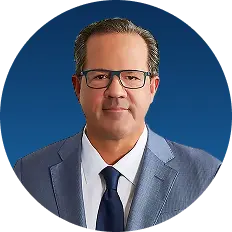
Reviewed by: James D. Payer
In a personal injury case, liability is one party’s legal responsibility for a personal injury or wrongful death suffered by another. If you suffer a truck accident injury, for example, you might pursue liability against the trucker who caused the accident. Depending on the circumstances, Florida might allow you to pursue liability with or without fault.
Negligence Liability
Negligence, which means roughly ‘carelessness,’ is the most common basis for personal injury liability.
To win a negligence claim, you must prove the following legal elements:
The defendant owed you a duty of care. This is almost always the case, since almost everyone has a duty to act with care to avoid injuring others. The real question is the exact nature of that duty. Your doctor, for example, must observe an elevated duty of care when providing you with medical treatment.
- The defendant breached their duty of care: Whatever the defendant’s duty of care, the ‘breach’ element is met if the defendant failed to meet its demands. Perhaps a passing motorist ran a stop light, for example, or perhaps your doctor failed to order the lab tests you needed.
- Damages: You must prove every dime of the losses you are claiming.
- Cause in fact: The defendant’s negligence must have caused the injury you are complaining of. In other words, it must be true that if the defendant had not behaved negligently, you would not have suffered your injury.
- Proximate cause: Even if the defendant’s negligence caused your accident, it must have caused it in a way that, given the defendant’s negligence, a ‘reasonable person’ would have foreseen the likelihood of the accident you suffered.
You must prove all five of these elements to win your claim.
No-Fault Liability
You can win certain types of personal injury claims without even proving that the defendant was at fault. See below for details.
Car Accidents
Florida car accident law is different from the car accident law of most states, because Florida is a ‘no-fault’ state. For most injuries, you file a claim against your own personal injury protection (PIP) insurance without worrying about who was at fault.
If your injuries are serious enough or if another exception applies, however, you can escape these no-fault restrictions and sue the at-fault party.
Dog Bites
If you suffer a dog bite injury, you can sue the owner for damages even if the owner was not negligent in handling the dog and even if the dog had never bitten anyone before. The owner might have a defense if you provoked the dog or were trespassing on their property.
Workers’ Compensation Claims
Most workplace injuries fall within the jurisdiction of the workers’ compensation system. This system is no-fault in the sense that you can receive compensation without proving that your employer was at fault.
Workers’ compensation only pays a portion of your economic damages and none of your non-economic damages. If you can find an at-fault third party, however, you can sue them and demand non-economic damages.
Product Liability Claims
If you suffered an injury from a defective consumer product, you can sue the manufacturer, retailer, or distributor. You don’t have to prove fault to win, but you do have to prove that the product was defective and unreasonably dangerous.
Vicarious Liability
Under the system of vicarious liability, one party can bear liability for the consequences of the wrongful act of another party.
Employer-Employee Liability
If an employee injured you through negligence while acting within the scope of their employment duties, you can sue the employer for personal injury. A delivery driver might have caused a traffic accident while making a delivery, for example.
Independent Contractors
‘Independent contractors’ are not employees, and you cannot sue the company they work for based on their misconduct. The reason for this exception is the degree of independence that the independent contractor enjoys – their ‘employer’ is essentially their client, not their boss.
‘Dangerous Instrumentalities’
Certain activities are so dangerous that people who engage in them are liable for any resulting harm, no matter how careful they might have been. Blasting caps are a good example of a dangerous instrumentality.
Intentional Tort Liability
An intentional tort occurs when someone deliberately harms you or subjects you to some sort of abuse. You can file a personal injury lawsuit against the perpetrator. In many cases, the prosecutor can also pursue criminal liability Some examples follow.
Assault
Assault occurs when someone deliberately subjects you to the fear of immediate harm. Putting a gun in your face counts, for example. It doesn’t matter if the gun isn’t loaded as long as you reasonably believe it was loaded. Cocking their fist or taking a swing at you can also constitute assault.
Battery
Battery occurs when someone makes actual physical contact with you. The contact can be harmful, such as a punch in the nose, or offensive, as in a sexual assault.
Intentional Infliction of Emotional Distress
You can sue someone for deliberately inflicting severe emotional distress on you, even without physical injury. An example would be someone telephoning you, impersonating the county coroner, and falsely telling you that your family member died in a car accident.
Comparative Fault
A defendant can reduce their liability to the extent that the accident that generated the harm was partly your fault. If you were 30% at fault, for example, a court will reduce the defendant’s liability by 30%. If you were more than 50% at fault, the defendant’s liability drops to zero.
You Can Fight Back With Help From an Orlando Personal Injury Lawyer
It is possible to settle certain small personal injury claims on your own. Nevertheless, pursuing a sizable personal injury liability claim against an at-fault party on your own is not a good idea, especially if you must negotiate against an insurance adjuster. Contact an experienced Orlando personal injury lawyer at Payer Law Personal Injury Lawyers to supply you with the assistance you need. You can call us at (407) 648-1510.
Hours: Open 24 hours daily
$27.56
MILLION
VERDICT
Car crash resulting in significant brain injuries
$3.10
MILLION
VERDICT
Jury verdict in ambulance liabilty damage case
$2.25
MILLION
VERDICT
Car accident resulting in
a TBI
$2.00
MILLION
VERDICT
Breathing injuries due to
chemical exposure
$1.65
MILLION
VERDICT
Our clients son was killed by an allegedly drunk driver
$1.25
MILLION
VERDICT
Car accident resulting in lower leg amputation
$1
MILLION
VERDICT
Car accident resulting in multiple facial damages

Injured?
Contact Us Today
Client Reviews
Professional, efficient, helpful, and dedicated to their clients. Lysette West extremely attentive and responsive, answered every question or concern professionally and swiftly. She set my mind at ease during some of the most difficult times I have encountered. Even when I missed an appointment because of a natural disaster. She jumped right into the situation cleared it up and got the ball rolling again in short order. I only wish I was able to call on Payer Law for all my legal issues.
James has a heart for justice and is passionate about helping the ones in need of fair representation. Thank you for your professionalism and confidence in what’s right. Thank you for caring and being there for my mom and our family. God bless.
The staff are courteous and knowledgeable. Chris Payer treats me like family and I know he is fighting for me and my case. I highly recommend Payer Law.


